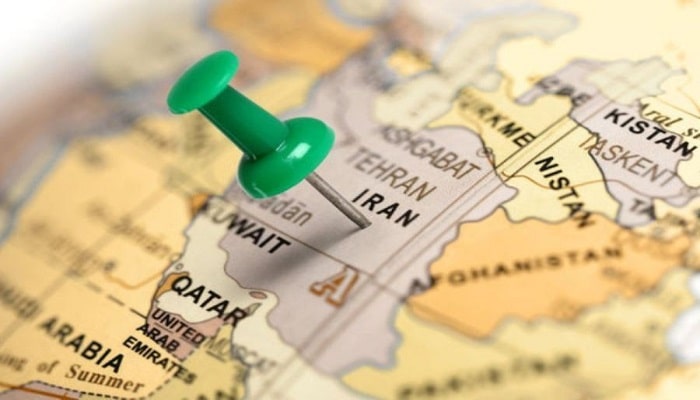PNN – In an article referring to Iran’s punitive response to the Zionist regime, The New York Times discussed the dimensions, manner and role of each regional actor in easing tensions in the Middle East.
According to Pakistan News Network’s report from the New York Times, Iran’s attack on Israel has made the new reality of the Middle East undeniable, and it is becoming more difficult to control conflicts.
This popular American newspaper reported: For months, Arab countries, from the UAE and Oman to Jordan and Egypt, have been trying to ease the war between Israel and Hamas.
But Iran’s missile and drone attack on Israel, which put the entire region on alert, showed the new and undeniable reality of the Middle East, which is that unlike the past battles between Israel and Palestine and other conflicts involving Israel and Lebanon or Syria, the war in this region is still expanding.
Randa Slim, a senior expert at the Washington-based Middle East Institute, explained in this regard: “Part of the reason for restraining these wars was rooted in the non-directness of the confrontations between Iran and Israel. But now we have entered a time when the direct battle of these two sides can lead the entire region and America to war.”
Yost Hilterman, director of the International Crisis Group’s program for the Middle East and North Africa, added: “Currently, the only force that can deal with the current situation is the United States and Iran to prevent the spread of the conflict.”
He added: “Iran’s message clearly indicated that they are looking to show their power, not to expand the war.”
The role of Arab countries in the current situation
According to the New York Times, in the meantime, some Arab countries increased diplomatic efforts to reduce tension, and others, such as Yemen and Lebanon, praised this attack.
Oman emphasized the need for an immediate ceasefire between Israel and Hamas, and Kuwait considered it necessary to deal with the root causes of conflicts in the region.
Saudi Arabia, which has tried to establish relatively warm relations with Tehran since the re-establishment of diplomatic relations with Iran, has expressed concern about the dangerous consequences of military escalation in the region.
Read more:
The night of Iran’s revenge and the fear of the people of the occupied territories
However, Renad Mansour, the senior researcher of the Middle East and North Africa program at the English think tank Chatham House, believes that “the displeasure of the Arab leaders only increased when Israel received the support of the United States by attacking Gaza, and this caused the disgust of the Arab community.”
Does the recent direct conflict between Iran and Israel affect Arab countries’ relations with Tel Aviv?
It is not clear whether the current situation can affect Arab-Israeli relations, but since the start of the war in Gaza, these relations have cooled. However, at the same time, none of the Arab governments that have recently established relations with Israel are ready to completely abandon this relationship.
According to the New York Times, the UAE and Bahrain, which signed an agreement to normalize relations with Israel in 2020, have suspended business deals or publicly distanced themselves from Tel Aviv since the start of the Gaza war. Saudi Arabia, which was considering the possibility of diplomatic normalization with Israel, considered any agreement to require the creation of a path towards a Palestinian state, which is an unlikely prospect in Israel’s current political climate.
Therefore, analysts believe that this avoidance of Arab countries will probably continue; However, none of them have cut ties so far.
Meanwhile, Qatar and Oman have become more active behind the scenes to establish a ceasefire and renew diplomatic efforts between Iran and the US to prevent a wider war.
In the continuation of this report, it is stated: Qatar’s close relations with Hamas, Iran and the United States have caused the ministers and senior officials of this country to play a prominent role in regional diplomacy. Oman has also become a channel for transmitting messages between Tehran and Washington.
According to a senior security official in Iraq and a senior US government official in Washington, who did not want to be named, in just the past few days, Washington has communicated with Tehran through messages sent by the Omanis as well as Switzerland.
In another part of his analysis in this context, Slim added: “The new question is which country can play the role of mediator and negotiator between Israel and Iran?”
He further clarified: “Given that the rules and red lines have changed; they should be able to communicate.”
The Islamic Revolutionary Guard Corps announced on Saturday night that 10 drones and missiles were fired at the occupied territories and positions of the Zionist regime.
It is stated in the notice of the IRGC: In response to the numerous crimes of the Zionist regime, including the attack on the consular section of the Iranian embassy in Damascus and the martyrdom of a group of our country’s military commanders and advisers in Syria, the IRGC’s air force hit certain targets inside the occupied territories by firing dozens of missiles and drones.
The representative of the Islamic Republic of Iran in the United Nations also announced: Iran’s military action was based on Article 51 of the United Nations Charter regarding legitimate defense in response to the aggression of the Zionist regime on the diplomatic places of our country in Damascus.

